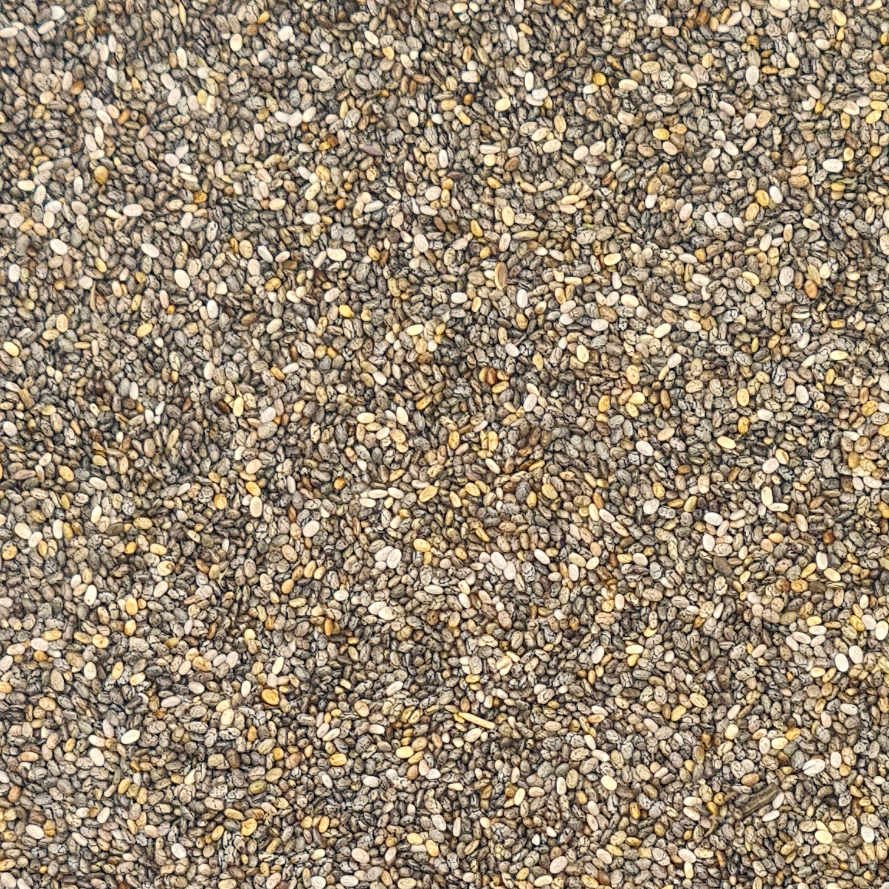Chia seeds are small, oval seeds that come from the Salvia hispanica plant and are known in modern times for their health benefits. They are rich in various nutrients and are often considered a superfood.
Here's what you should know about chia seeds in the diets of rodents, birds and other animals:
Nutrients in chia seeds:
Omega-3 fatty acids: Chia seeds are an excellent source of omega-3 fatty acids, especially alpha-linolenic acid (ALA). These are important for brain function and anti-inflammation.
Dietary fibre:
Chia seeds are rich in fibre, which aids digestion and supports gut health.
Proteins:
Chia seeds contain proteins that are important for cell growth and muscle maintenance.
Minerals:
They contain minerals such as calcium, phosphorus and magnesium, which help strengthen bones and teeth.
Vitamins:
Chia seeds contain vitamins such as vitamin A, B vitamins and vitamin E, which are important for skin, coat and organ health.
Antioxidants:
These seeds also contain antioxidants that can protect cells from damage.
Importance for animal nutrition:
Rodents (dwarf hamsters, golden hamsters, teddy hamsters, rats, coloured mice, gerbils, chinchillas, degus, guinea pigs):
Chia seeds can be offered in small amounts as an occasional treat as they are rich in fibre and omega-3 fatty acids. This can help promote health, but should not be the main food source.
Rabbits:
Chia seeds should only be given in limited quantities as rabbits require a high fibre diet. They can be used as an occasional treat.
Parrots and parakeets (budgerigars, cockatiels, agapornids, sparrow parrots):
Chia seeds can be part of a balanced diet as they provide important nutrients such as omega-3 fatty acids and vitamins. However, offer them in moderation.
Finches (Zebra Finches, Canaries, Amadines):
Chia seeds can occasionally be used in a balanced diet, but should not be fed excessively as they are high in calories.
Remember that the main food source for these animals should be high quality pet food or fresh vegetables and fruits. Chia seeds can be a healthy addition, but should not make up the majority of their diet. Make sure you soak the seeds before feeding as they can swell in the stomach. Also, always consider the individual needs of your animals.





